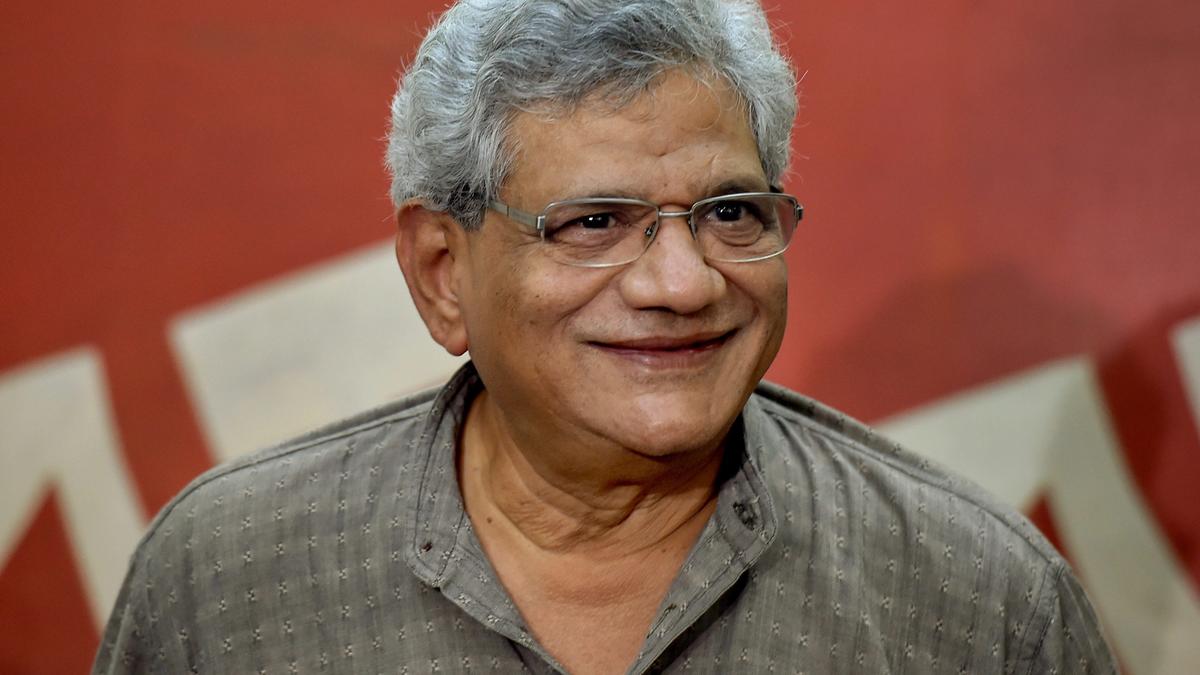
Sitaram Yechury: The man with multiple identities
The Hindu
Sitaram Yechhury Obituary: Sitaram Yechury, CPI(M) General Secretary, passes away at 72 after prolonged illness, leaving behind a legacy of leadership.
CPI(M) General Secretary Sitaram Yechury, 72, passed away at All India Institute of Medical Sciences on Thursday (September 12, 2024) after prolonged illness. He had been undergoing treatment for lung infection and was admitted to the hospital on August 19th
Mr. Yechury straddled many identities. He was a Marxist, he was a polyglot who was at ease in high brow academic circles but could very well explain the same theories in plainest of language to the person on the street, he spoke multiple tongues, he was a strategist who revelled in bringing disparate ideological strands together. He was many things and yet you could not tie him down to any one label.
Born on 12th August 1952 into a Telugu speaking family in Chennai. His father was an engineer in Andhra Pradesh State Road Transport Corporation and his mother was a government servant. He grew up in Hyderabad till the Telangana agitation of 1969 brought him to Delhi. A gold medalist in economics Mr. Yechury graduated from St. Stephen’s college in Delhi university. He chose the newly established Jawaharlal Nehru University over Delhi School of Economics for his masters. A choice that steered his career in an entirely different direction. He was drawn to the irreverent academic atmosphere of the new university where the faculty addressed the students by their first names and expected the students to address them by theirs. In an interview to The Hindu in 2020 he recalled, “In my entrance interview, there were three very senior professors. Suddenly one of them asked, do you smoke? I said yes, so he said ‘then light one up’.”
It was here that his political career began. He made a name for himself as JNU students union President for forcing Indira Gandhi to resign as the chancellor. The students refused to allow the then Vice Chancellor B D Nag Chaudhary to enter the campus. The government in response issued orders to close the university. But the students and faculty together ensured the University continues to function as usual. The library was open 24-hours, all classes were held and mess was running. This went on for about forty days. “There was a shortage of money. I remember, we sent out students to Sarojini Nagar market and Connaught place with placards around their necks which read, “University is functioning, the VC is on strike” to collect money to run the University,” he recalled in the same interview.
Indira Gandhi even after defeat in Lok Sabha elections had been holding on to her post as Chancellor of the university. The students led by him marched to her house demanding her resignation. “There were 500 of us. Her aide told us that only five of us can go in to meet her. But when we insisted, she herself came out. We read out our resolution against her which was full of litanies, but she heard stoically. I handed over the resolution to her and she took it politely too. Couple of days later she resigned,” he said. This incident was recorded in the famous photograph of Indira Gandhi standing stoically next to a dishevelled Yechury holding a resolution in his hand surrounded by students.
He along with his predecessor Prakash Karat were instrumental in making JNU an impregnable Left bastion.
During his nearly five decade long political career, he broke several conventions. First of which was to become the national President of Students Federation of India. All the Presidents till then had come from Kerala or Bengal, he was the first not to belong to either of the states.

 Run 3 Space | Play Space Running Game
Run 3 Space | Play Space Running Game Traffic Jam 3D | Online Racing Game
Traffic Jam 3D | Online Racing Game Duck Hunt | Play Old Classic Game
Duck Hunt | Play Old Classic Game











